The Massive, Messy Messi Scandal in Hong Kong
Was it a groin injury? Or the international Black Hand?
By: Timothy F. Hamlett
“Football is not a matter of life and death; it is much more important than that,” according to the legendary Liverpool FC manager Bill Shankly. In the last week, many people in Hong Kong have seemed to agree with him. Now in China as well, where authorities have abruptly canceled two football matches featuring Argentina’s national team amid a growing backlash in the country against star player Lionel Messi for remaining on the bench during an exhibition game featuring his Major League Soccer team Inter Miami in Hong Kong.
The sudden appearance of football as a public issue started with an idea for a “mega event” – an attraction for visitors which the Hong Kong government will happily subsidize in the hope that that it will offset the “bad news” stories of rights infringed and critics jailed, of which the government is still producing a plentiful supply. A local lifestyle magazine, The Tatler, proposed to invite a football team, Inter Miami, to come to Hong Kong and play a match against a local selection, whose role would be like that of those young men who made an honest living losing gracefully to the Harlem Globetrotters.
Inter Miami (the Inter is a nod to Inter Milan, a much older club) play in the US men's league, Major League Soccer, and became a matter of global interest among fans in 2023 when they signed Lionel Messi, previously of Barcelona and the Argentina national team, which he led to victory in the last World Cup.
Messi is a legend in his own lifetime. He has won everything a professional footballer can win, including the accolades of his peers. He was so central to the idea of a mega event that the contract signed with Inter Miami specified that he personally should play at least 45 minutes, if fit.
There was a lot riding on this event. As the South China Morning Post put it: “After missing out on mega events to its Asian neighbors because it was slower to reopen after the pandemic and seen to lack world-class venues, Hong Kong is in thrall to a visit from a football team captained by Lionel Messi... Fingers are crossed that everything goes to plan after the organizers of tours by superstars Taylor Swift and British rock band Coldplay bypassed Hong Kong for Singapore, Japan, and the Philippines. It was a stinging snub with the city so in need of big events to lure tourists and put itself back on the global map after social unrest and Covid-19.”
Alas, it turned out that Mr Messi was not fit. He spent the match sitting on the bench with the substitutes. Miami, who have other international stars, won 4-1. But fans were not pleased. The Hong Kong Standard reported that “Frustrated Hongkongers booed and chanted for refunds after big names - including Lionel Messi and Luis Suarez - didn’t come onto the pitch as Inter Miami beat the Hong Kong team 4:1 on Sunday. Many started cursing and crying for refunds after seeing the two icons remain on the bench ... while some even left the stadium before the final whistle.”
Recriminations followed. Sports minister Kevin Yeung said the government “could not have known” that Messi would not play. The Tatler announced that under the circumstances it would not collect the HK$16 million subsidy offered by the government for “mega events,” and later offered to refund half the cost of tickets. Nevertheless, local comments were unforgiving and very personal. Regina Ip, one of the city's more cerebral legislators and not previously much given to comment on sporting matters, said “Hong Kong people hate Messi, Inter Miami, and the black hand behind them, for the deliberate and calculated snub to Hong Kong. Messi should never be allowed to return to Hong Kong. His lies and hypocrisy are disgusting.”
South China Morning Post columnist Yonden Lahtoo weighed in with “Hong Kong hates Lionel Messi now…He sat it out on the bench the entire time, all petulant in pink like some unhappy flamingo.” (Inter Miami play in pink shirts, an interesting choice in Florida) “We might as well have been looking at a pouty little ballerina in a tutu throwing a childish sulking fit. Even if his purported hamstring injury rendered him unable to play ... or even if his minders did not want to risk exacerbating his injury, would it have killed them to at least have their precious princess wave at the crowd, perhaps even say a few words to them?”
The whole dispute became an international relations event four days later, when Inter Miami played Japan's club champions (and lost on penalties) with Messi playing for 30 minutes. Reuters quoted a Hong Kong official as saying that “The coach ... announced in Hong Kong on February 4 that Messi could not play due to injury, but three days later, Messi acted freely and played in Japan... Hong Kong citizens have lots of questions." And they were not the only ones. Global Times, China's tabloid newspaper counterpart of the US’s Fox News, said the absence of Messi in Hong Kong's match may have been politically motivated and involved foreign forces aiming to hit the city's “mega-event economy.” Western media had been using the World Cup winner's no-show in front of a sold-out crowd to slander the city, the newspaper said.
The Beijing-controlled Hong Kong newspaper Ta Kung Pao claimed that Messi’s non-performance must have been a foreign plot to embarrass HK, because the father of one of Inter Miami’s owners was apparently a former CIA operative.
What can we conclude from all this, apart from the already well-established fact that many Chinese people still have a Japan issue?
We may agree with the Standard's conclusion that “The massive PR disaster at Hong Kong Stadium has offered a valuable lesson: it can be easier said than done to organize a truly mega event.” And this should not perhaps be attempted by eager amateurs. Harborfest – a pop extravaganza thrown together by enthusiasts as a public pick-me-up after the SARS epidemic – also ended in tears. If the event involves football, we can also note the confirmation of the point made by Kuper and Szymanski in their book Soccernomics: outside Europe, where professional soccer clubs are as common as rice shops, many supporters do not regard themselves as bound to one club; they may instead follow one player wherever he goes.
Liverpool fans will be disappointed if Mo Salah is not in the team; they do not on that account denounce the whole game as a rip-off. Accordingly, I am unable to agree with the writer in the English version of the China Daily, who found a bright side to the whole thing by concluding from the mostly verbal expressions of disgust that “This demonstrated the discipline of local residents and the rule of law and order in the city. Had the incident occurred in a Western democracy, large-scale riots with massive destruction of public facilities might well have resulted.”
In your dreams.

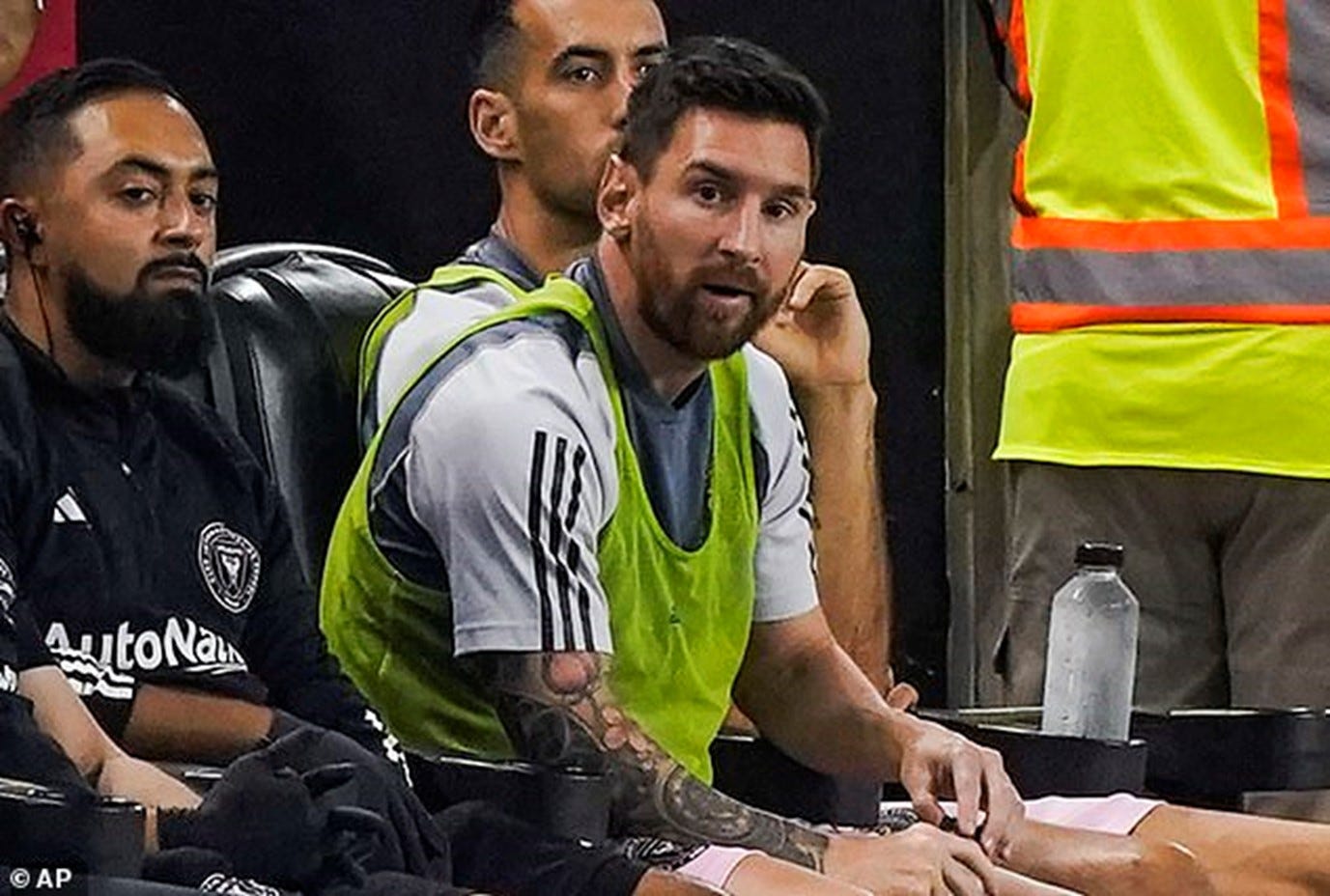
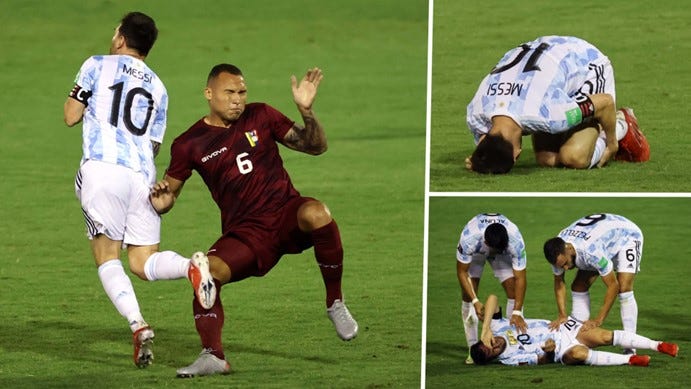
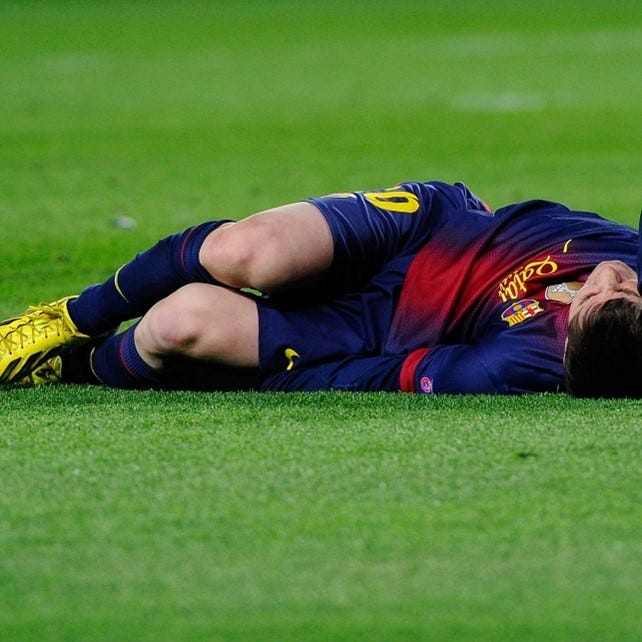
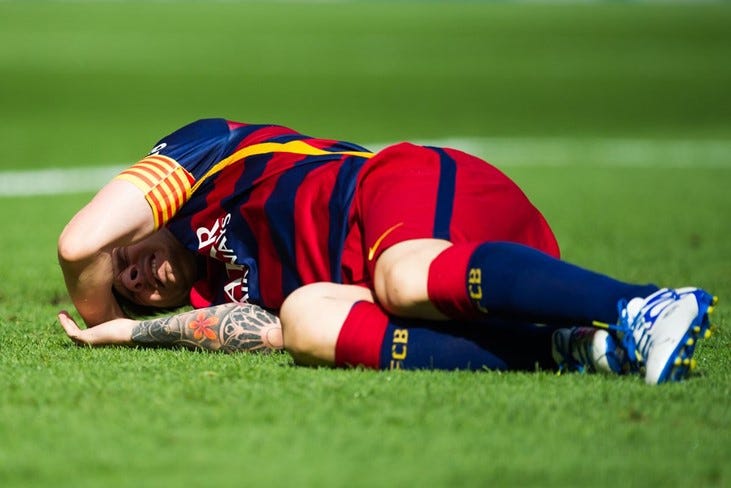
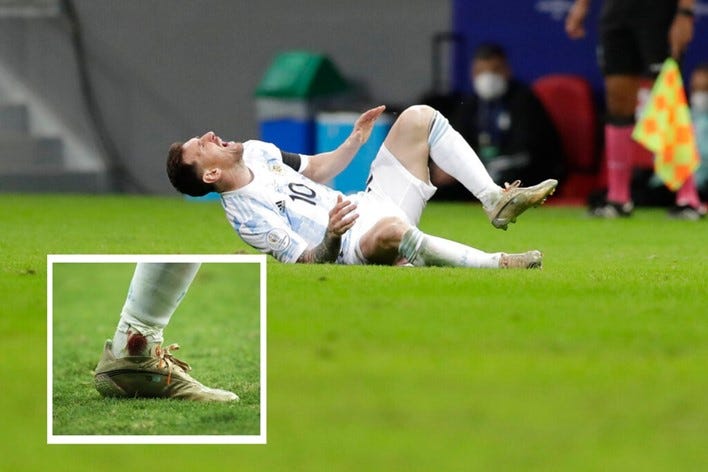
Not a fan of football, but watching this I think it’s an over-réaction . Perhaps Messi really was injured, and doesn’t feel well?!!! Why are those people being suspicious about everything and everyone…I guess that happens when the conscience is guilty lol.
Oh, blimey!